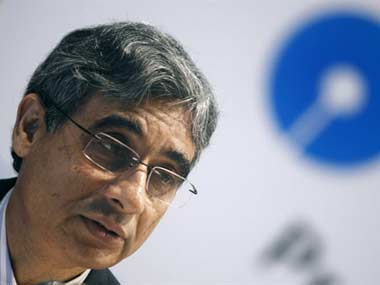Should bank balance-sheets change with every passing breeze, depending on the whims and fancies of the top boss’ predilections?
The Reserve Bank of India says no. It has been noticing sharp swings in the earnings of public sector banks whenever a change of guard takes place at the top. State Bank of India, the largest bank in the country, reported a 99% drop in net profit soon for the year ended March 2011. Reason: new Chairman Pratip Chaudhuri took over from O P Bhatt in March 2011.
[caption id=“attachment_21508” align=“alignleft” width=“380” caption=“Incoming chairmen - in order to show better performance during their tenures - tend to restate the last accounts handed down by the previous incumbent.AFP Photo”]  [/caption]
“Violent swings in banks’ earnings whenever there is a change of guard, known as the new broom syndrome, is not reflective of best practices,” RBI Deputy Governor K C Chakraborty was quoted as saying by The Economic Times.
A bit of recent history illustrates this point. As Firstpost noted last month:
“State Bank under Bhatt has been a stellar performer because it has been behaving less like an arm of government and more like a commercial entity eager to carve out market share. To scale up in size and strength, it began the process of merging its subsidiaries with itself (two done, five more to go) and launched an aggressive loan growth strategy with its special home loan scheme. Under the latter, interest rates were kept low in the initial two years and then raised to normal rates. It was a huge hit with borrowers, especially during the 2008-09 downturn.”
It is a given that when the loan-book grows fast, bad loans also keep pace. However, incoming chairmen - in order to show better performance during their tenures - tend to restate the last accounts handed down by the previous incumbent to show exceptionally bad performance. This way they get leeway to show that the bank is performing better under them. This is the practice that the RBI is unhappy about.
Impact Shorts
More ShortsThe newspaper also lists similar instances in SBI when Janki Ballabh succeeded G G Vaidya in November 2000 and SBI’s net profit plunged 45% in the immediate quarter. Bhatt, Chaudhari’s predecessor, who took over as SBI chairman five years ago, oversaw a 35% plunge in the net profit. The trend is true in the case of Bank of Baroda as well as Bank of India, The Economic Times adds.
The key here is that a strong statement from the RBI may not change the way things are run at public sector banks. The RBI, with its relative independence from the government, can make bold statements. However, the implementation of a professional approach to management has to be injected by the government. The government after all is a majority owner in SBI, Bank of India and other public sector banks.
The government needs to separate bureaucracy and executive appointments. Most of the chief executives of public sector enterprises, including banks, are remunerated according to government norms for bureaucrats. Private sector banks link the remuneration of their executives to the bank’s financial performance. They are given stock options and have fortunes linked to them.
Stockbroking companies have already stated after SBI’s fourth quarter results in March 2011 that they prefer private sector banks over public sector banks for now. The BSE Bankex index fell 2.3% over the past one month. SBI shares are down 12.54% while Indian Bank, another public sector bank, fell 8.5%. Private sector bank HDFC Bank’s shares rose 3.2% over the past month, indicating the market’s clear preference.
Besides this, SBI is also looking forward to capital infusion by the government. However, the government does not seem to be in any hurry. The government is already having a rethink about the Rs 6,000 crore it promised to invest in public sector banks in the budget announced in February 2011.
SBI is planning a rights issue some time this fiscal to raise Rs 20,000 crore to shore up capital adequacy. The government will have to put close to Rs 12,000 crore by virtue of holding a 59% stake in the bank.
Firstpost has argued in the past that the government needs to do much more to stop state-owned companies from losing their way.


)

)
)
)
)
)
)
)
)



